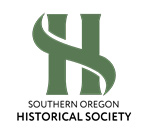In the mid-1800s, brothers Jesse and Charles Applegate and their families settled land claims near “Yoncalla,” an area named after an Indian tribe north of Roseburg, Ore. Today, a seven-acre parcel of their property is dedicated to conserving more than 3,000 varieties of apples.
The apple tree preserve is managed by owner Nick Botner, who started growing and grafting apples in 1979. Through the Home Orchard Society, Botner exchanged hundreds of apple-wood scions, and grafted those he received onto his dwarf trees.
Botner, known by some as a “modern-day Johnny Appleseed” or “the Noah of the apple collecting world,” says his passion for apples came from growing up in New York apple country and homesteading in Alaska for 28 years. He moved to Yoncalla bent on perpetuating fruit unavailable in the Far North, including pears, cherries, plums, grapes, and even paw-paws.
From the largest private collection of apple varieties, Botner contributes apples to the biennial Apple Day Festival at the nearby Charles and Melinda Applegate House. The festival is sponsored by descendants and friends of the pioneer Applegate family. The next Apple Day Festival will be held in the fall of 2014.
Sources: Nabban, Gary. "What's Driving our favorite fruit into decline?" Grist: a beacon in the smog 9 Mar. 2010. Web. 12 Aug. 2013. http://grist.org/ ; Stinnett, John."Apples to Apples." Cottage Grove Sentinel 27 Oct. 2009. 12 Aug. 2013. Print; Wetherbee, Chris. Mother Earth News Feb. 2004. Print; Applegate, Susan. Personal interview. 6 Aug. 2013.
The SOHS Library is OPEN to the public at 106 N. Central Avenue in Medford, with FREE access to the SOHS Archives, from 12:00 - 4:00 pm, Tuesday through Saturday. Appointments are not necessary. Please contact library@sohs.org, or call 541-622-2025 ex 200 to ask questions or request research.
Yoncalla's "Johnny Appleseed" contributes to Applegate Apple Festival
Episode
2227
Date
